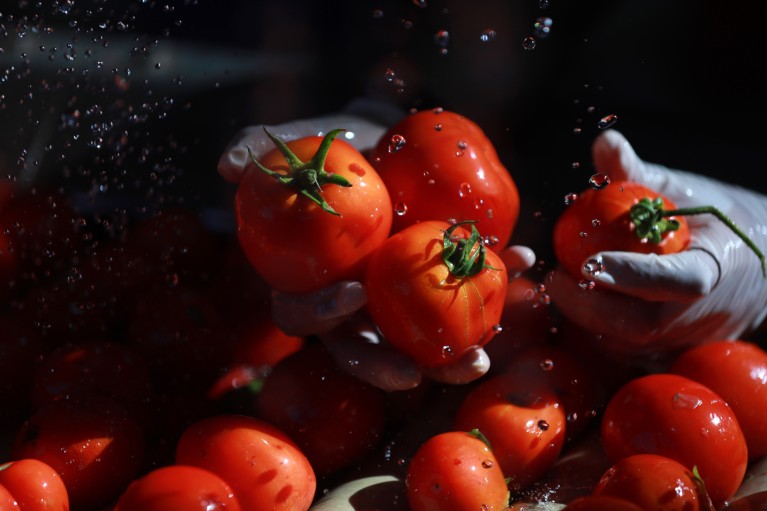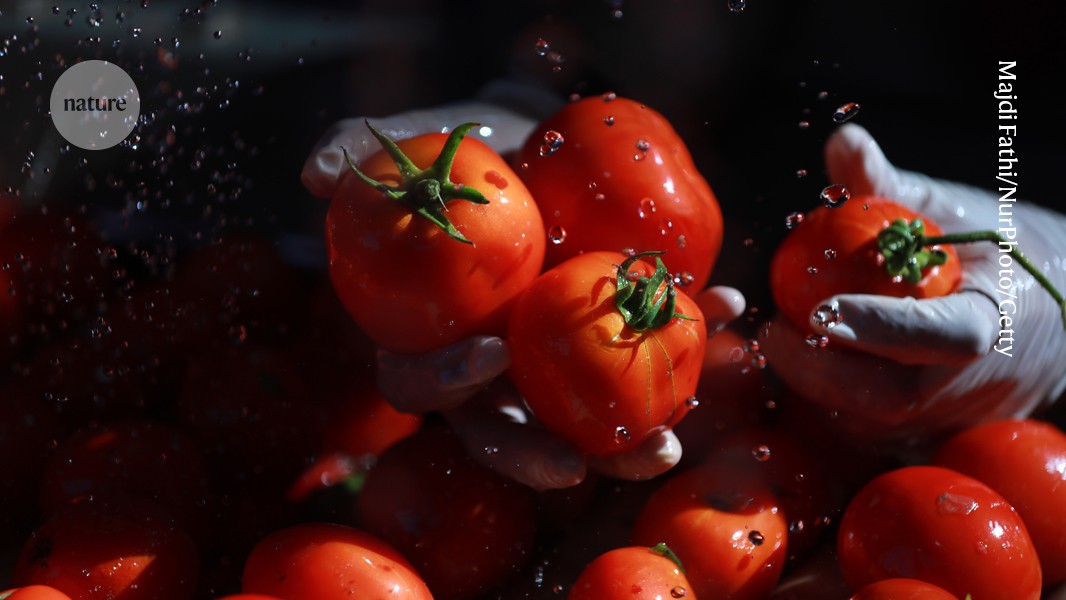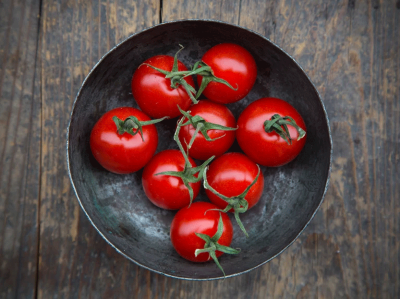
Two changes make tomatoes tastier.Credit: Majdi Fathi/NurPhoto/Getty
Rotten tomatoes no more: growing sweeter tomatoes is possible by editing just two of the fruit’s genes. Deleting the genes increased the engineered fruits’ glucose and fructose levels by up to 30% over mass-produced tomatoes, according to a study1 published today in Nature.
Better yet, the gene-edited tomatoes weigh roughly the same as those sold now, and the plants produce as much fruit as do current varieties. These findings could not only help to improve tomatoes worldwide but are also an important step forward in understanding how fruits produce and store sugar, the authors write.
This study is “great and significant in its field and beyond”, says Christophe Rothan, a fruit biologist at the French National Institute of Agricultural Research in Paris, who was not involved in the study. It raises the “possibility of using the great genetic diversity existing in wild species, which has been partially lost in domesticated varieties, to improve modern varieties”, he says.
Special sauce
More than 186 million tonnes of tomatoes are produced globally each year, making the fruit one of the most valuable horticultural crops in the world. Like other crops, tomatoes have been domesticated by selecting for traits that reflect human preference — such as fruit size. Cultivated tomatoes today are up to 100 times larger than their wild ancestors, helping to boost how much fruit each plant produces.
Gene-edited tomatoes could provide new source of vitamin D
But this large size comes at a cost: typically, the bigger the fruit, the lower the proportion of the sugars that are responsible for the classic home-grown tomato taste. Supermarket tomatoes, by contrast, “taste like water”, says study co-author Jinzhe Zhang, a plant geneticist at the Chinese Academy of Agricultural Sciences in Beijing. “They’re flavourless.”
To address this problem, Zhang and his colleagues compared the genomes of cultivated tomato species (Solanum lycopersicum) with their much-sweeter wild counterparts. They found the sweet spot in two genes, each encoding a protein that degrades enzymes responsible for sugar production. Using CRISPR–Cas9 gene-editing technology, the researchers deactivated the two genes and found that the plants bore fruit that was much sweeter than that of a widely cultivated variety.
The new tomato would be welcome not only because it would make consumers happy, but also because it could cut the amount of time, energy and money that goes into preparing other products such as tomato paste, which involves removing water from the fruit, says Ann Powell, a retired plant biochemist who previously worked at the University of California, Davis.
The findings might bear fruit for other produce as well too: these genes are found across a range of plant species, and the mechanisms that underlie sugar production in fruits have long stumped scientists, Powell says.



